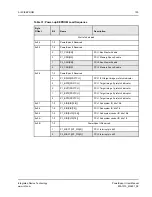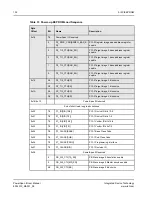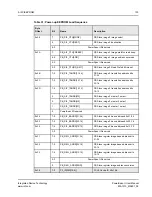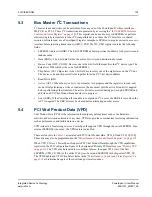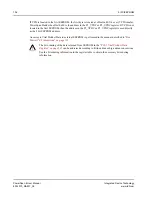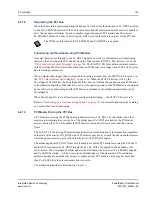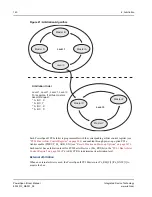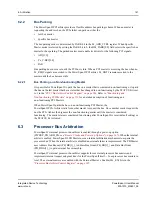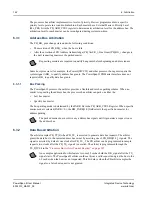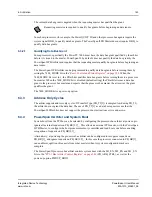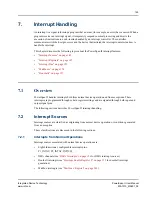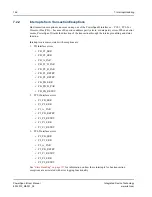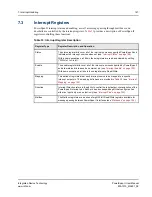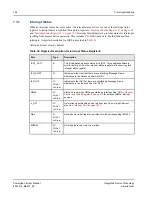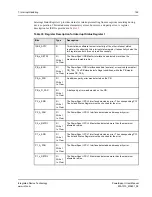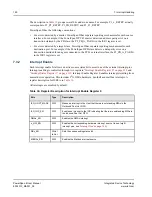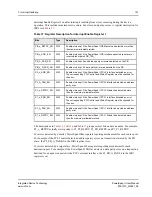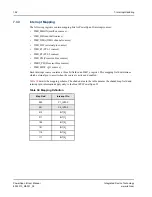
6. Arbitration
138
PowerSpan II User Manual
80A1010_MA001_09
Integrated Device Technology
www.idt.com
Figure 20: Assignment of Additional Bus Requesters with PCI Arbiters
6.2.1
Arbitration Levels
The PowerSpan II PCI arbiter implements a fairness algorithm in order to prevent deadlocks. There are
two priority levels signed to the PCI master agents. Fairness is defined by the
PCI 2.2 Specification
as
an algorithm that grants all potential PCI masters access to the bus, independent of other requests.
6.2.1.1
High and Low Priority PCI Agents
There are two priority levels assigned to the PCI Master Agents: high priority and low priority. Each
priority level performs a round-robin arbitration algorithm among the PCI masters assigned to each
level. For example, all the PCI masters assigned to the lower priority level represent one entry in the
higher priority round-robin arbitration. For every turn of the high priority round-robin arbitration, high
priority PCI masters asserting Px_REQ# are granted access to the PCI bus. At the same time, only one
lower priority level PCI master asserting Px_REQ# is granted access to the PCI bus.
Arbitration on PowerSpan II is hidden. Hidden arbitration means it occurs during the previous access
so that no PCI cycles are consumed due to arbitration
—
except when the bus is in an idle state.
In the Single PCI PowerSpan II, PCI_REQ#[7:5]/PCI_GNT#[7:5] are assigned to the PCI-1
arbiter.
PCI-1
Arbiter
P1_GNT[4:1]#
P1_REQ[4:1]#
4
4
3
3
PCI-2
Arbiter
4
4
P2_GNT[4:1]#
P2_REQ[4:1]#
PCI_GNT[7:5]#
PCI_REQ[7:5]#
Assignable to
either PCI-1 or PCI-2






